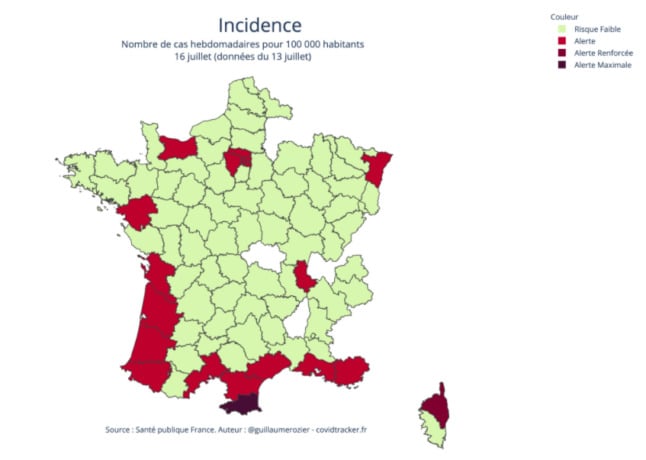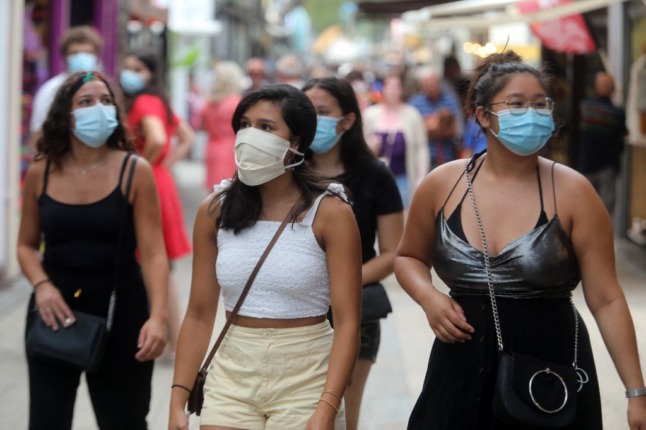Authorities in the Pyrénées-Orientales département announced on Friday that compulsory mask-wearing would be reimposed in all public spaces except beaches – a measure that is currently in place in towns across the country that are experiencing a rise in Covid-19 cases.
From Saturday, residents over the age of 11 in the northern Bas-Rhin département will also be required to wear masks in public outdoor places such as markets, public transport and crowded areas.
The incidence rate has more than doubled in just a week, authorities said, rising from 34,7 to almost 50 new cases per 100,000 inhabitants.
#COVID19 | Afin de lutter contre la propagation du virus, l’arrêté préfectoral du 17 juin 2021, imposant le port du #masque pour les piétons de 11 ans & plus sur certaines parties du territoire du département du #BasRhin, est reconduit jusqu’au 16 août 2021 inclus.#TenirEnsemble pic.twitter.com/IGtt2EzVET
— Préfète de la région Grand Est et du Bas-Rhin (@Prefet67) July 16, 2021
EXPLAINED: Which towns in France have imposed rules on face masks in the street?
However, on Saturday local authorities in the Pyrénées-Orientales announced further restrictions. Bars, restaurants and beach establishments will have to close at 11pm, in a further attempt to curb the rise in cases of the Delta variant.
The measures will come into effect on Sunday 18th July and will stay in place until August 2nd.
[Covid-19]
⚠️ Progression des cas de contamination par le variant delta@Prefet66 a pris une nouvelle mesure📢 Fermeture des bars, restaurants et établissements de plage à 23h00 dans le département
du dimanche 18 juillet 23h00 au 2 août 06h00.
➕ 🔽https://t.co/MO5MLTJApX pic.twitter.com/k0HxncxoxY
— Préfet des Pyrénées-Orientales (@Prefet66) July 17, 2021
The number of Covid cases has risen sharply in the past few days in the southern département, which is on the border with Spain.
It now has the highest incidence rate in the country, at 257 per 100,000 inhabitants, compared to just 12,7 on July 2nd.

In the past week, almost 1% of 20 year-olds tested positive for Covid in the Pyrénées-Orientales.
Sur les 7 derniers jours, presque 1% des 20-29 ans ont été testés positivement dans les Pyrénées-Orientales pic.twitter.com/1I7jOT2qDL
— GRZ (@GuillaumeRozier) July 16, 2021
The Delta variant, which was first discovered in India has rapidly become dominant in most parts of France. It is reported to be responsible for around 70 percent of cases.
France has tightened restrictions for people coming from Spain, and from Saturday requires a negative 24-hour Covid test for non-vaccinated travellers crossing the border.
READ ALSO: France to require 24-hour test for UK and some EU countries over delta variant fears



 Please whitelist us to continue reading.
Please whitelist us to continue reading.
Member comments